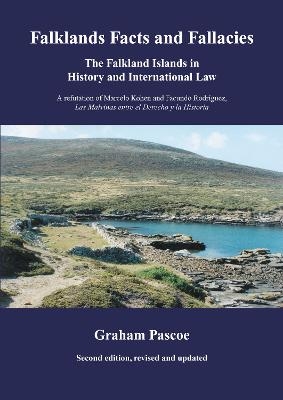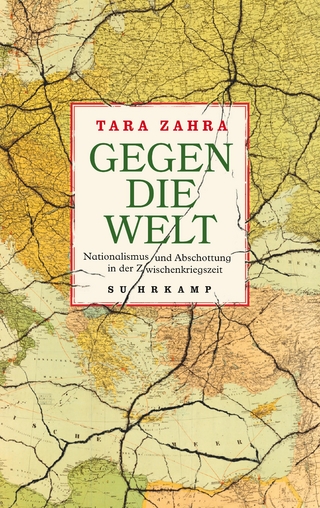
Falklands Facts and Fallacies
Grosvenor House Publishing Ltd (Verlag)
978-1-80381-088-1 (ISBN)
- Titel nicht im Sortiment
- Artikel merken
Falklands Facts and Fallacies is a pioneer work and an essential contribution to an understanding of the history and legal status of the Falkland Islands. It presents abundant evidence from documents (some never printed before) in archives in Buenos Aires, La Plata, Montevideo, London, Cambridge, Stanley, Paris, Munich and Washington DC, and provides the facts to correct the fallacies and distortions in accounts by earlier authors.
It reveals persuasive evidence that the Falklands were discovered by a Portuguese expedition at the latest around 1518-19, and not by Vespucci or Magellan.
It demonstrates conclusively that the Anglo-Spanish agreement of 1771 did not contain a reservation of Spanish rights, that Britain did not make a secret promise to abandon the islands, and that the Nootka Sound Convention of 1790 did not restrict Britain's rights in the Falklands, but greatly extended them at the expense of Spain.
For the first time ever, extracts from the despairing letters from the Falklands written in German in 1824 to Louis Vernet by his brother Emilio are printed here in translation, revealing the total chaos of the abortive 1824 Argentine expedition to the islands.
This book reveals how tiny the Argentine settlement in the islands was in 1826-33. In April 1829 there were only 52 people, and there was a constant turnover of population; many people stayed only a few months, and the population reached its maximum of 128 only for a few weeks in mid-1831 before declining to 37 people at the beginning of 1833.
This work also refutes the falsehood that Britain expelled an Argentine population from the Falklands in 1833. That myth has been Argentina's principal propaganda weapon since the 1960s in its attempts to undermine Falkland Islanders' right to self-determination. In fact Britain encouraged the residents to stay, and only a handful left the islands.
A crucial document printed here is the 1850 Convention of Peace between Argentina and Britain. At Argentina's insistence, this was a comprehensive peace treaty which restored "perfect friendship" between the two countries. Critical exchanges between the Argentine and British negotiators are printed here for the first time, which show that Argentina dropped its claim to the Falklands and accepted that the islands are British. That, and the many later acts by Argentina described here, definitively ended any Argentine title to the islands.
The legal status of the Falklands is analysed here by extensive reference to legal works, to United Nations resolutions on decolonisation, and to rulings by the International Court of Justice, which together demonstrate conclusively that the islands are British territory in international law and that the Falkland Islanders, who have now (2022) lived in their country for over 180 years and for nine generations, are a unique people who are holders of territorial sovereignty with the full right of external self-determination.
This book completely refutes the argumentation presented by Professor Marcelo Kohen and Facundo Rodríguez in their work Las Malvinas entre el Derecho y la Historia, Buenos Aires2015 (and its English version: The Malvinas/Falklands Between History and Law), which repeats many of the untruths and distortions that have been presented for over half a century by Argentine authors - and by Argentine governments at the United Nations.
This second edition has been thoroughly revised and updated; in cases of difference it supersedes the first edition published in March 2020.
Dr Graham Pascoe was born in Brighton, Sussex, in 1949. He studied German and French at Oxford University, obtained diplomas in English as a Foreign Language from the University of Wales and in Linguistics from London University, and a doctorate in English as a Foreign Language, with Linguistics and Phonetics, from the University of Munich. He taught English in Britain, Switzerland, Poland, Germany, Austria and Japan, and in the 1980s he presented English-teaching programmes on Bavarian television, some of which are still shown in Germany. He lives in Germany, and for 30 years he taught at the Sprachen und Dolmetscher Institut in Munich, a specialist college that trains students to become professional translators and interpreters. He is married, with three grown-up children and (so far) five grandchildren. He first heard of the Falkland Islands from his music teacher at primary school, a Falkland Islander born at Roy Cove on West Falkland in 1887, and he became actively interested in the islands while at university. For the past 20 years he has been intensively researching the islands' history; he has written several articles and internet papers on the Falklands, and in 2014 he published The Battle of the Falklands 1914, a 60-page booklet commemorating the 100th anniversary of the battle. Falklands Facts and Fallacies is his first full-length book on the islands. The first two volumes of his major 4-volume work The Falklands Saga were published in June 2022; volumes 3 and 4 are in course of preparation.
Introduction: Why we wrote this book
1 Discovery; later sightings; treaties; the Nootka Sound Convention
2 The first inhabitants; the First Falklands Crisis, 1767-1771
3 Uti possidetis - did Argentina inherit the Falklands from Spain?
4 The years 1811-25
5 Louis Vernet's five years in the Falklands, 1826-31
6 The Second Falklands Crisis, 1831-1833
7 The years 1840-1850; the end of Argentina's title
8 The years 1850-1890
9 The years 1890-1955
10 The people; self-determination; the Falklands at the United Nations
11 Summary of conclusions
Glossary of terms, abbreviations and conventions
Select Bibliography
| Erscheinungsdatum | 28.09.2022 |
|---|---|
| Zusatzinfo | 49 colour and greyscale images |
| Verlagsort | Claygate |
| Sprache | englisch |
| Maße | 210 x 297 mm |
| Gewicht | 1174 g |
| Themenwelt | Geisteswissenschaften ► Geschichte ► Allgemeine Geschichte |
| Geisteswissenschaften ► Geschichte ► Regional- / Ländergeschichte | |
| Recht / Steuern ► EU / Internationales Recht | |
| ISBN-10 | 1-80381-088-2 / 1803810882 |
| ISBN-13 | 978-1-80381-088-1 / 9781803810881 |
| Zustand | Neuware |
| Haben Sie eine Frage zum Produkt? |
aus dem Bereich


